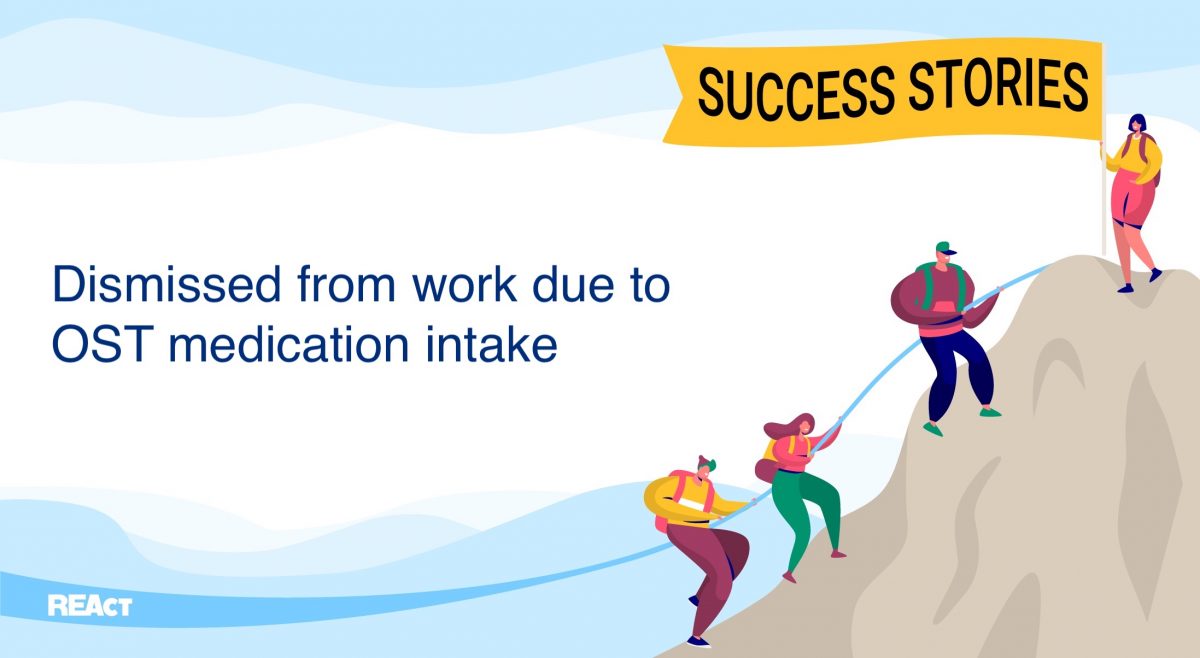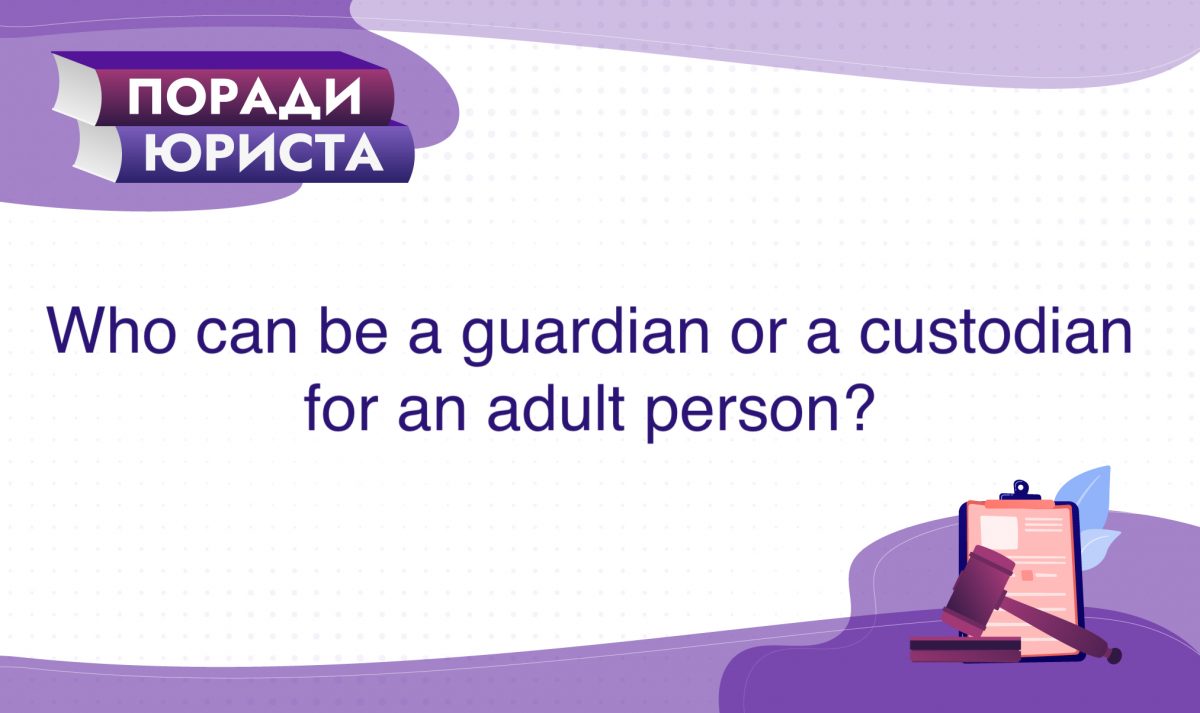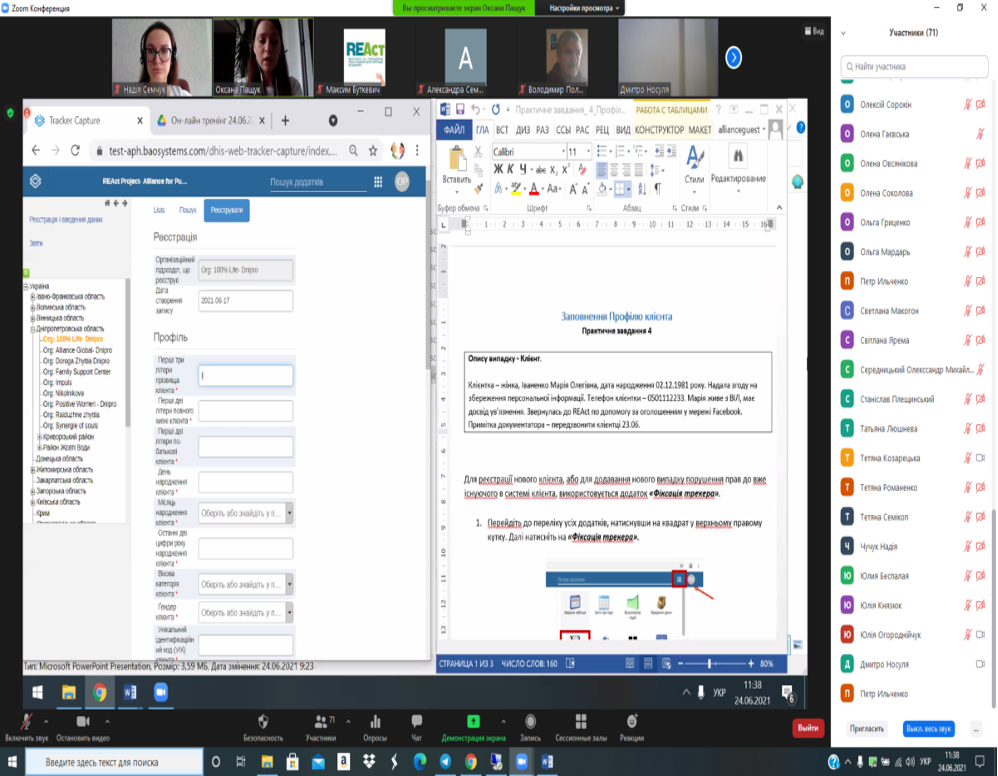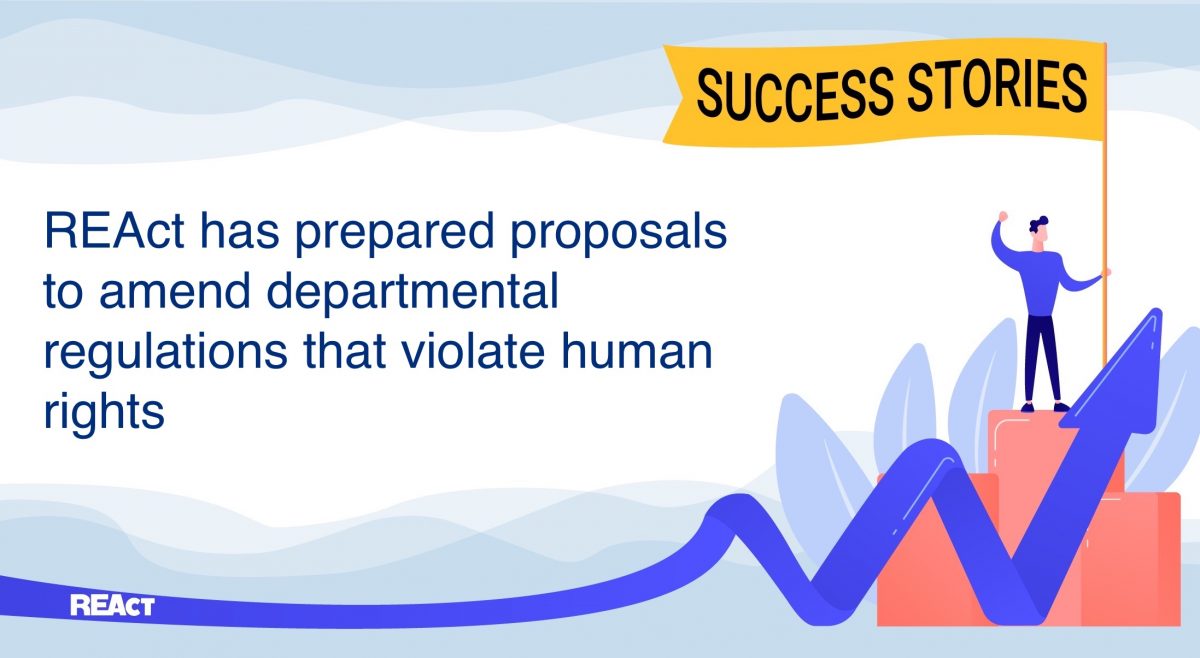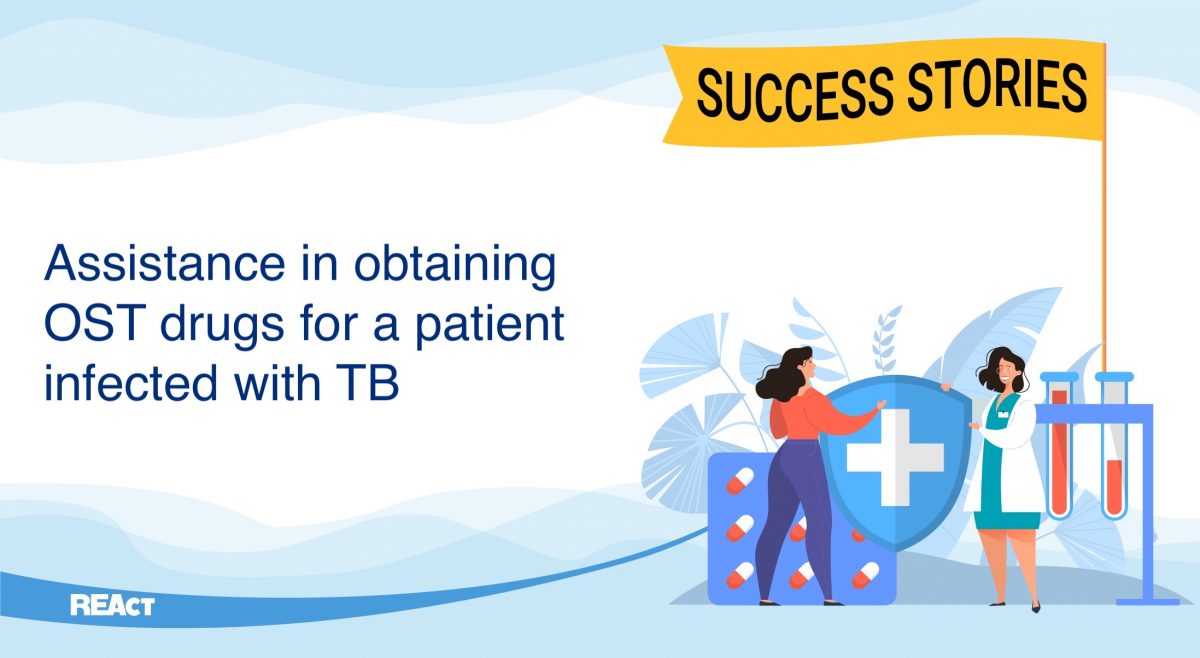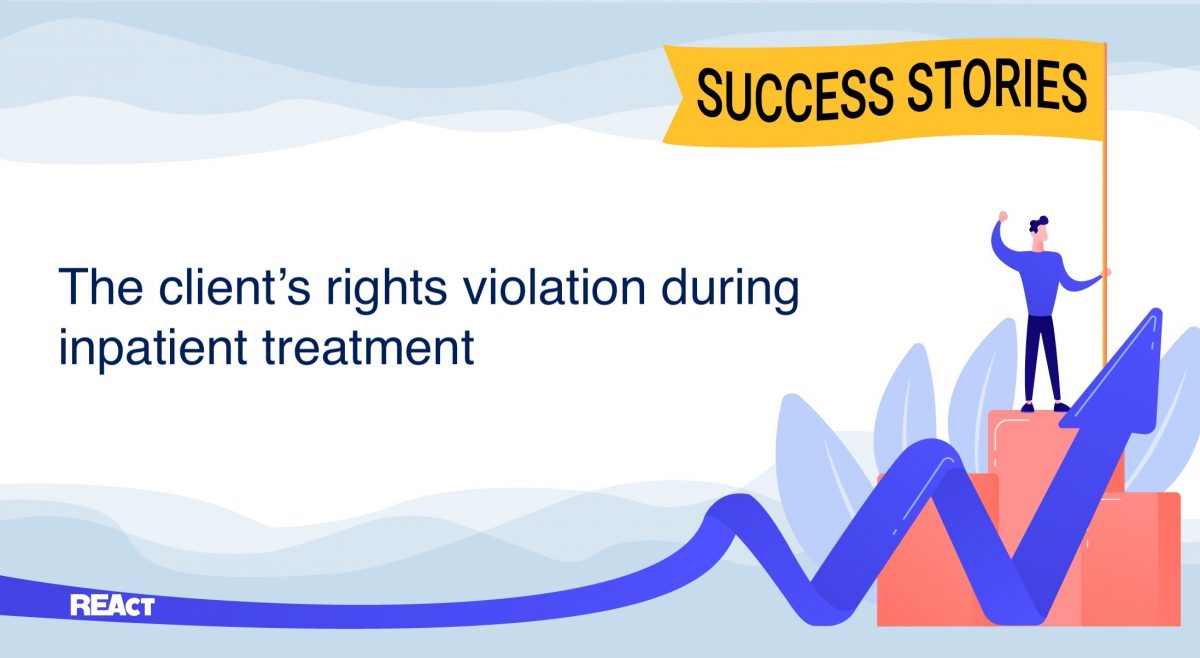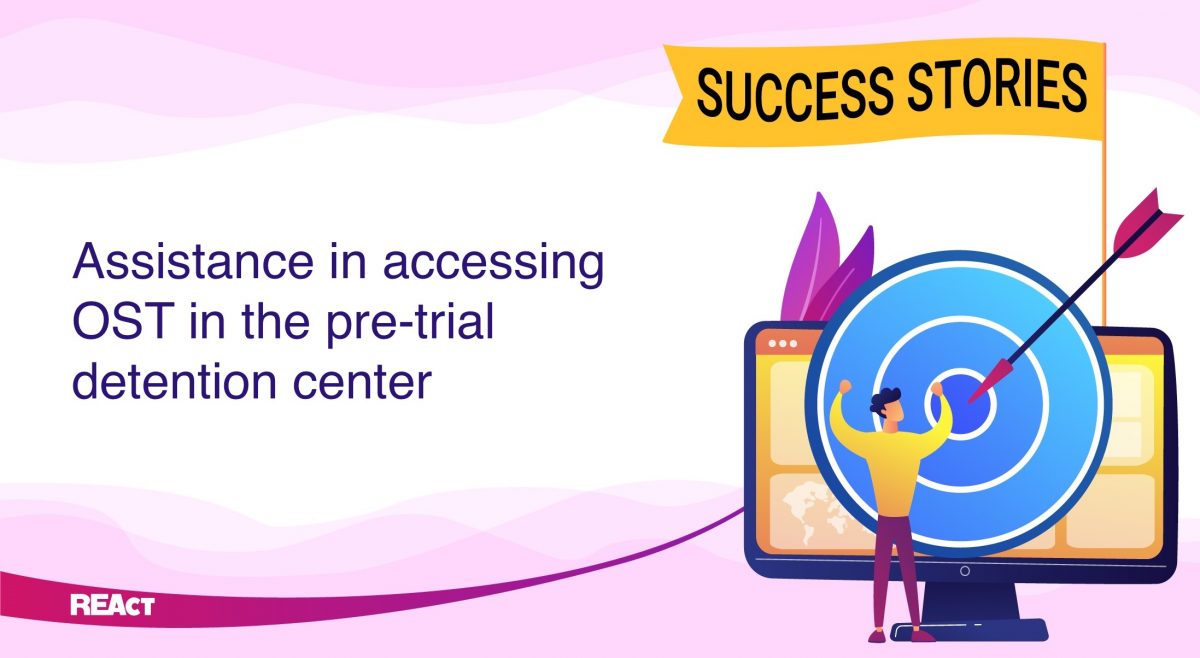Andrii Tolopilo, a REAct project expert, participated in the Working Group for Coordinating the Implementation of the Strategy for a Comprehensive Response to Human Rights-Related Barriers to Accessing HIV and TB Prevention and Treatment Services For 2019-2030.
Based on data collected through the REAct system, the participants were informed of some gaps in the government regulation of healthcare and treatment, which affect key communities and violate their rights in health facilities.
The REAct team has prepared proposals to change departmental regulations that violate the rights of HIV- and TB-vulnerable populations. During the working meeting, the members of the Working Group reviewed them for further discussion and input generation toward initiating appropriate changes at the level of the Ministry of Health of Ukraine.
Key proposals announced:
Regarding OST:
To recommend that the Ministry of Health of Ukraine approve a new form of OST program participant certificate and the OST dispensing protocol for the medical units of the State Penitentiary Service of Ukraine in detention and prison settings set forth in Order No. 200 of March 27, 2012, “On Approval of the Procedure for Substitution Maintenance Therapy of Persons with Mental and Behavioral Disorders Due to Opioid Use.”
Outdated and contradictory regulations for interdepartmental interaction during the OST dispensing process:
To recommend that the Ministry of Health of Ukraine initiate steps to bring the Procedure for Interaction Between Health Care Facilities, Law Enforcement Agencies, Pre-Trial Detention Facilities, and Correctional Centers to Ensure the Continuity of Treatment for Substitution Therapy Patients in compliance with actual practice and meet the rights protection requirements for patients on prescribed OST.
Procedure for providing medical care to individuals held in temporary detention facilities:
To recommend that the Ministry of Health initiate steps to establish and approve with the Ministry of Internal Affairs via Joint Order the procedure for providing medical care by MoH healthcare specialists and personnel to detainees held in temporary detention facilities with due regard for the needs of PWID, PLHIV, PLTB, MSM, SW.
Regarding the provision of ART to detainees, individuals taken in custody, administrative arrestees held in temporary detention facilities:
To recommend that the Ministry of Health of Ukraine initiate necessary steps and clarifications for the Procedure for Interaction Between Health Care Facilities, Territorial Bodies of Internal Affairs, Penitentiary and Pre-Trial Detention Facilities to Ensure Continuity of Monitoring and Supervisory Activities, Clinical and Laboratory Monitoring, and Antiretroviral Therapy for HIV-Positive Persons by establishing the time frame during which the duty officer should notify the medical unit in a detention or prison setting, which shall not exceed two hours from the time of arrival of the ART patient, that the patient has to be seen by the infectious disease specialist and provided with drugs required. Also, the procedure for confirmation of ART intake by the person placed in a detention or prison setting outside of the working hours has to be adopted and approved.
Regarding the provision of ART and adapted milk formulas in maternity hospital settings:
To recommend that the Ministry of Health of Ukraine make regional AIDS centers responsible and accountable for the timely provision of district maternity hospitals with ART drugs and adapted milk formulas.


